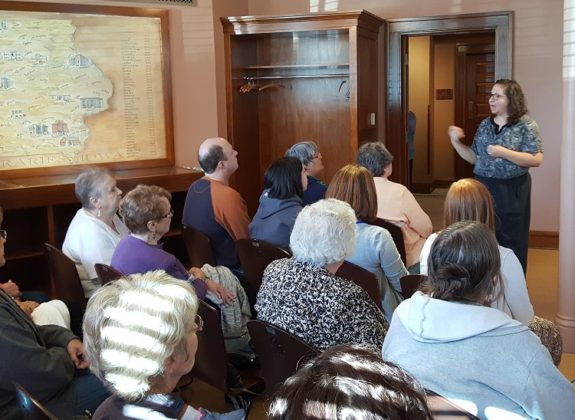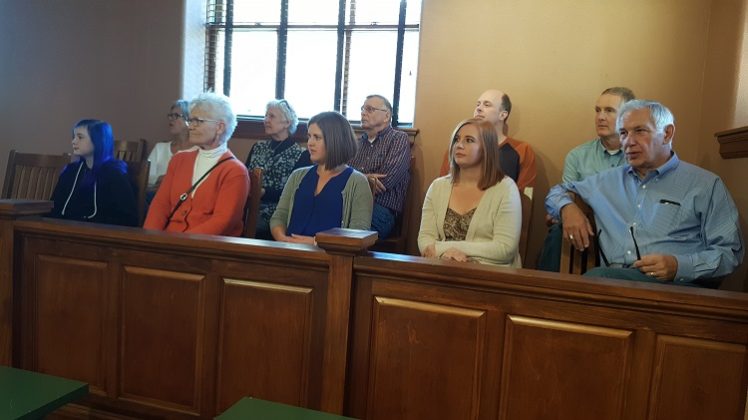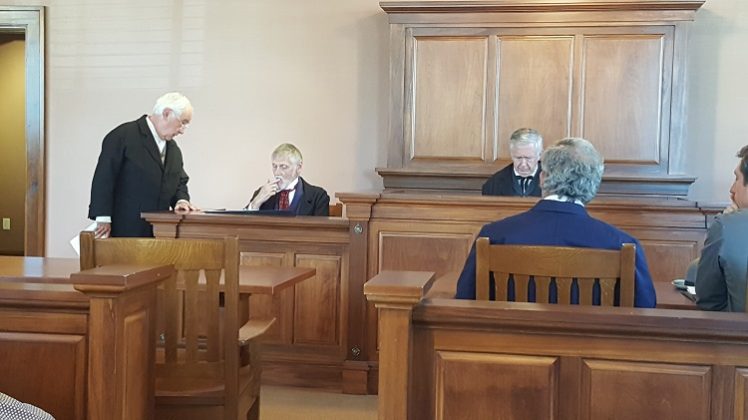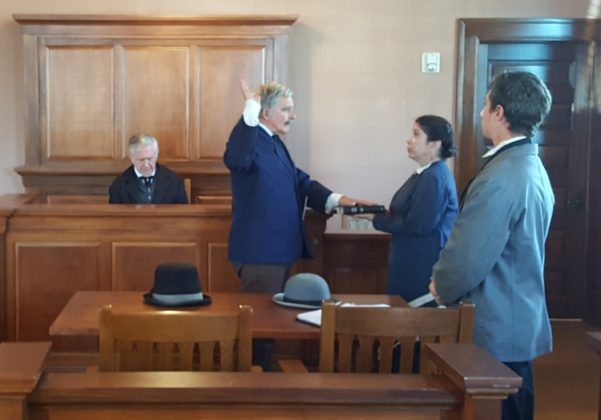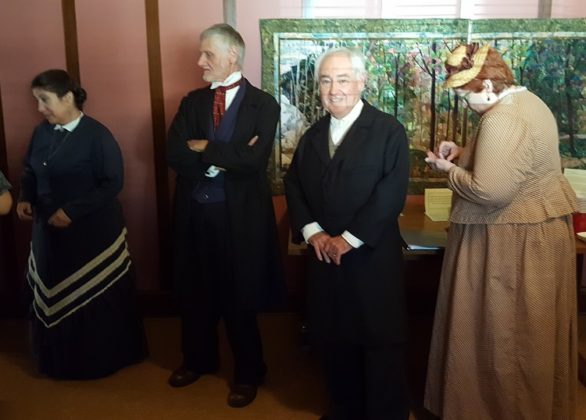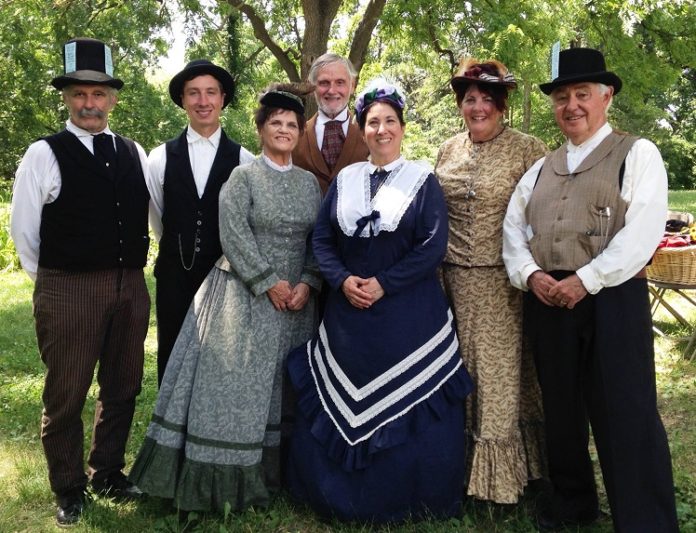
The jury for a civil trial in Iowa in the 1870s would have been composed exclusively of males. That was the law.
We have come a long way — pace Donald Trump — and the jury pool at the Carnegie Library Museum Saturday afternoon was more gender inclusive. In fact, it was majority female, possibly because most of the 25 people attending the historical trial recreations were female.
Historically, Iowa women were granted the right to sit on juries the same year they received the right to vote: 1920.
While Perry people filled the jury box of the Carnegie Library Museum courtroom, the roles of judge, lawyers, witnesses and clerk of court were acted by costumed interpreters from the ensemble at Living History Farms (LHF) in Urbandale.
Members of the eight-person cast all live in the Des Moines metro area.
Janet Clair Dennis, director of interpretation at LHF, said the all-volunteer cast stages a variety of historical recreations at Walnut Hill, the 1870s-era town at LHF. Many are seasonal recreations, she said, but other milestones are also produced, such as 1870s-style weddings, funerals, mayoral election campaigns and Independence Day mayoral proclamations.
“The annual medicine show re-enactment is also a popular favorite,” she said, “and always draws a large audience.”
Clair Dennis said the cast also travels and produces several recreations of real Iowa court cases from the 1870s around Iowa, such as Saturday’s Carnegie performance.
In the first trial, lightning rod salesman Patrick Law, played by David Opalinski, claimed he was injured when thrown from a moving train by the train’s conductor, played by Jerry Eisenhour. Eric Sharp played the prosecuting attorney and Ed Truslow defended the railroad.
Tom Wilson, in the role of the judge, heard the case and instructed the clerk of court, played by Elysa Kess, to instruct the jury and report its verdict.
Proving itself a friend to big business, the Perry jury found for the defendant and denied the lightning rod salesman the $500 in damages he sought. After ruling, the jury learned from the clerk of court that the historical record showed the lower court awarded Law the damages, and the verdict was upheld on appeal to the Iowa Supreme Court in 1874.
In the second trial, the local jurors’ opinion squared with the historical record when they ruled Lena Tangen, the young widow of an old farmer, was not entitled to any inheritance beyond what the law of dower allowed. Tangen was played by Judy Blessington and the part of the farmer’s daughter was acted by Susan Eisenhour.
The laws of dower and courtesy were abolished by the Iowa legislature in 1981.
Property was also at issue in the third case, with the plaintiff, Roberta Sears, claiming she was cheated by the Kimball Music Company in her purchase of a piano.
All programs at the Carnegie Library Museum are free and open to the public.








